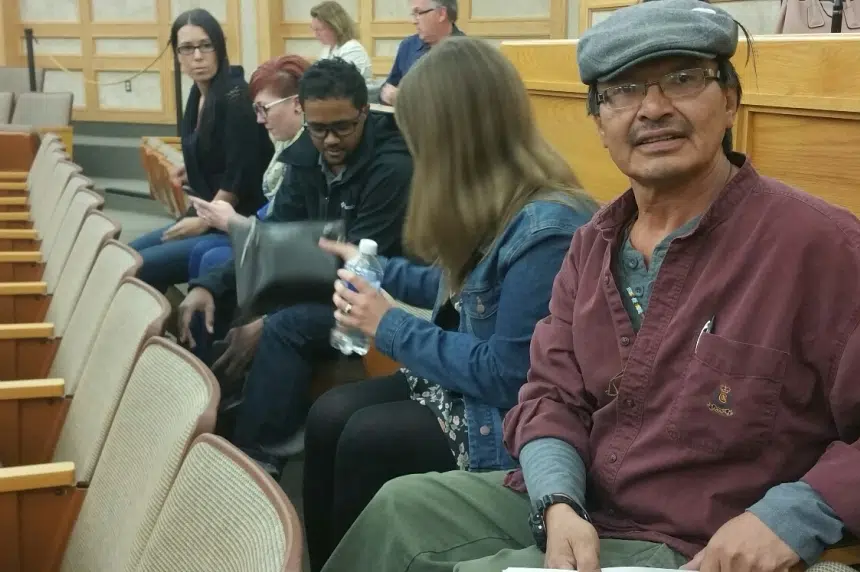Saskatoon City Council heard a different perspective on the Community Support Officers (CSOs) during its Monday meeting.
The CSOs have operated in the Downtown, Broadway and Riversdale Business Improvement Districts (BIDs) since 2012 under a pilot project. They respond to complaints of things like public intoxication, aggressive panhandling or people who appear to be suffering from mental illness.
On Monday, council debated whether to make the program permanent.
Brandon Nataway, 55, told council the CSOs serve a much bigger role than simply telling people to move along. Nataway spent over a decade living on the streets, and credited the CSOs approach with helping him turn his life around.
“They don’t just do the city thing. They kind of approached me, gave me a little advice about trying to straighten out my life instead of going around in circles, chasing the bottle, or whatever you want to call it,” he said.
Nataway recalled times when CSOs helped him out during the cold winter months, even when he was intoxicated. He said that he is now living at the McLeod House and is in an addictions treatment program.
“I haven’t beat the system yet. I’m still struggling with the addiction problems, because I still have to do my part of putting one step in front of the other one. So I haven’t quite beaten it yet. All I know is that I’m sober today and I’m maintaining to stay sober today,” he said.
Council voted 8-2 in favour of making the CSO program permanent. $450,000 to fund it will come out of a streetscaping reserve collected from parking meters in the BIDs for now. Part of council’s motion also calls for the city to approach the province about help funding the program.
Council Notebook
– Council voted in favour of approaching the province about regulating ride-sharing services like Uber. They are also going to ask the Saskatchewan Urban Municipalities Association (SUMA) and other cities in the province to help with the lobbying effort.
– A decision on a ban on smoking in all city-owned or operated public spaces was deferred until council meets again in October. The deferral was to allow those interested in addressing council a chance to be heard. If approved, the measure would come into effect Jan. 1, 2016.







